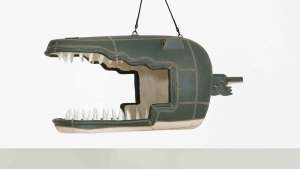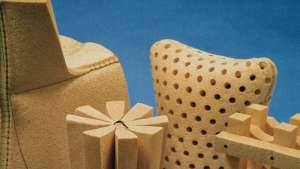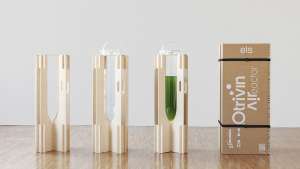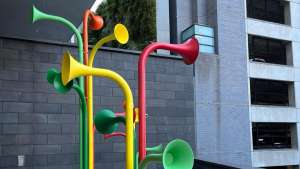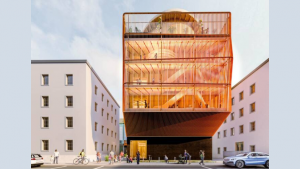The Glaucus Intelligent Fishing Net
In an attempt to help slow the radical (and sometimes accidental) exploitation of fish stocks in the oceans, The Glaucus is an autonomous fishing net that ensures overfishing is avoided, manages fish stocks sustainably and is controlled by the owner via a connected monitoring system.
Conventional trawling nets capture large amounts of by-catch and fish of the wrong size, most of which are thrown dead overboard. The depletion of smaller, younger fish decrease species numbers rapidly, which the loss larger fish specimens is also a problem, as it causes fishing-induced genetic modification of the species when only the smaller fish are left to breed.
The Glaucus searches autonomously for fish using sonar and sensor technology. Schools of fish are profiled by their size and silhouette, and undesirable fish are left alone. Once captured in the net, the three-part selection zones sort the fish by size, releasing the largest and smallest.
NutriSea Kit
The NutriSea toolkit (which consists of a solar dehydrator and 12 multi-purpose cages) provides coastal communities with a means of turning washed up seaweed into a highly nutritious powder. This accessible supplement can be used to create income for poorer coastal communities and fight nutritional deficiencies (like common iron deficiencies) everywhere.
Sargassum seaweed grows excessively all around the world, and is commonly seen as waste – however, it can be turned into a supplement high in nutrients and essential minerals using only the sun.
Many governments spend huge amounts of money clearing the weed from the coast and burning it, but with the NutriSea Kit the seaweed could save lives.
Seaweed is collected and cleaned, processed in the solar drier for 10 hours or so, and grated into powder (by simply rubbing against the cage walls). 10 grams of seaweed powder satisfies all the daily nutrient needs of an adult.
The Oysfloater
The Oysfloater is an alternative oyster farming raft for Taiwan, designed to help tackle the issue of waste and pollution created by discarded rafts.
Current bamboo oyster rafts in East Asia use polystyrene to stay buoyant, but this material weathers badly and has a short usable lifespan, so a substantial number of oyster rafts are discarded after the area’s annual typhoons, causing serious pollution.
The Oysfloater promotes sustainable development, is easy to assemble and use and has a modular design that can be adapted to suit the individual fisherman’s needs. The raft also has less water resistance than the bamboo rafts, has intelligent systems powered by solar energy, and reduces occupational back injuries.




